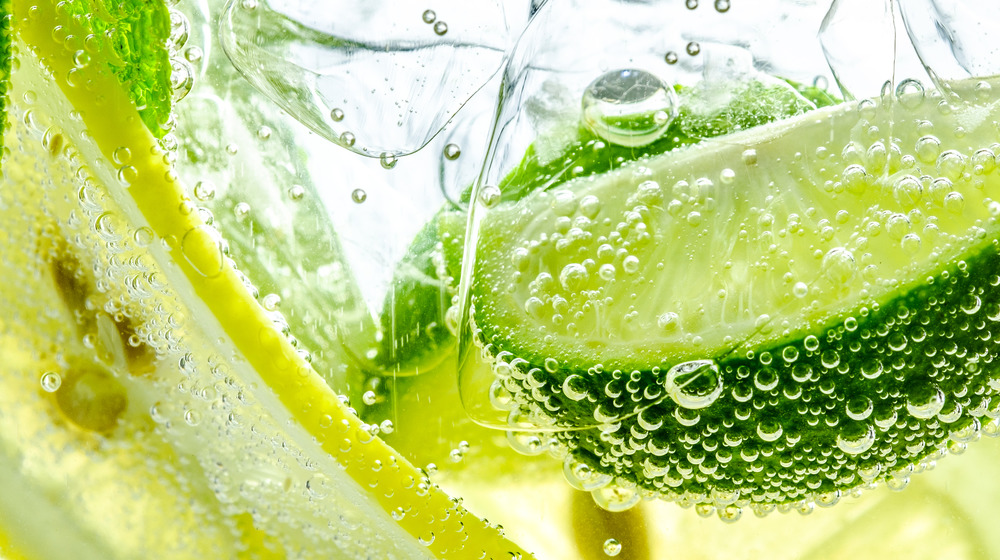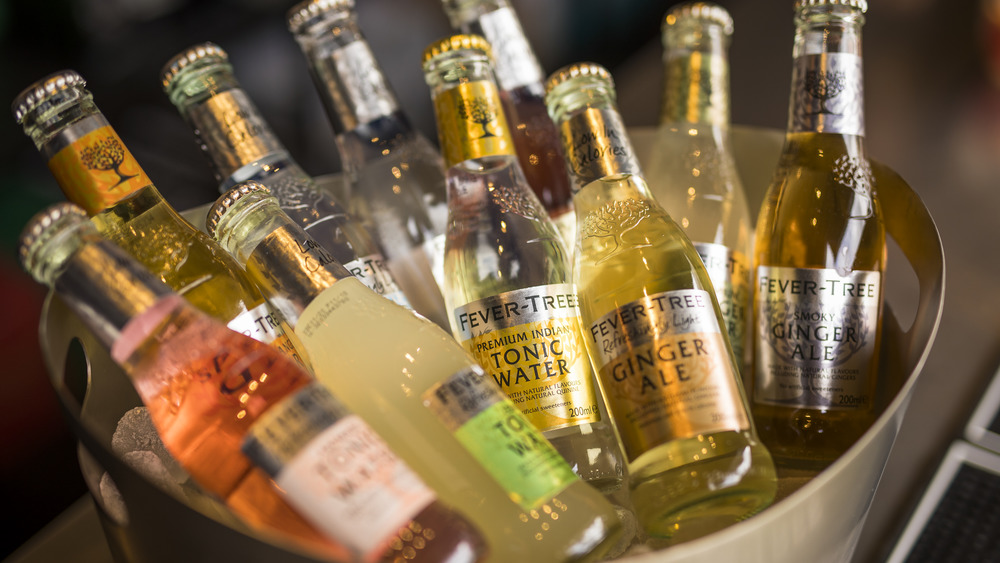Tonic Water Vs. Soda Water: What's The Real Difference?
Trips to the supermarket are often delayed because of endless choices. Sugar-free cereal or whole grain cereal? Unsweetened almond milk or vanilla oat milk? Organic brown eggs or free-range white eggs? Few decisions are more perplexing than the one between waters — more specifically, tonic water versus soda water. Next time you're staring confusedly at row upon row of substances that are all clear, all carbonated, and all called some variation of "water," here's how to figure out what you really need.
As puzzling as this may be, the term "soda water" is often used interchangeably with seltzer water, mineral water, and club soda, according to Epicurious. That's because they're all a form of carbonated water with a few minor differences. Seltzer water (or sparkling water), the article explains, is spring water that has been carbonated with carbon dioxide, resulting in a bubbly (but not flavorful) drink. Club soda has a more distinct flavor because it's infused with additional minerals, such as sodium chloride and potassium sulfate, Healthline reports. Finally, mineral water is collected from springs containing salts and sulfur compounds that give the water a natural carbonation, according to Epicurious. You can use each of these waters for the same purposes, but since mineral waters like San Pellegrino and Perrier come at a higher price point than most seltzer waters or club sodas, HuffPost says they're often enjoyed on their own instead of as mixers.
Tonic water is totally different from seltzer, mineral water, or club soda
Tonic water should not be swapped out for soda water in recipes because the flavor is, well, not very watery, Epicurious explains. Liquor.com lists the ingredients of tonic water as carbonated water, sugar, and a bitter compound called quinine, which comes from the bark of cinchona trees found throughout South America. A touch of quinine and a dash of sugar (or high-fructose corn syrup) give tonic water its unique bittersweet flavor, according to Healthline. They're also the factors that make a gin and tonic taste perfectly balanced, as explained in Liquor.com's classic recipe.
Next time you're making a cocktail (or just feeling thirsty), remember that you can choose pretty freely between seltzer water, mineral water, or club soda for a refreshing drink. When a recipe calls for tonic water, though, it's for a particular reason, so try not to use a substitute. Now you can enjoy one less episode of supermarket confusion.

